
The 1996 New Zealand general election was held on 12 October 1996 to determine the composition of the 45th New Zealand Parliament. It was notable for being the first election to be held under the new mixed-member proportional (MMP) electoral system, and produced a parliament considerably more diverse than previous elections. Under the new MMP system, 65 members were elected in single-member districts by first-past-the-post voting, while a further 55 "top-up" members were allocated from closed lists to achieve a proportional distribution based on each party's share of the nationwide party vote.
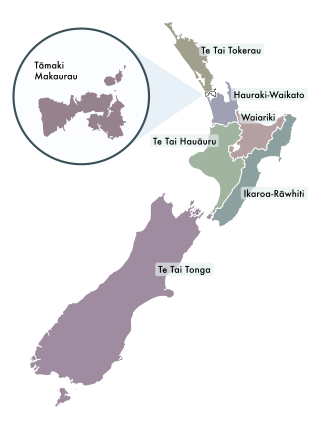
In New Zealand politics, Māori electorates, colloquially known as the Māori seats, are a special category of electorate that give reserved positions to representatives of Māori in the New Zealand Parliament. Every area in New Zealand is covered by both a general and a Māori electorate; as of 2020, there are seven Māori electorates. Since 1967, candidates in Māori electorates have not needed to be Māori themselves, but to register as a voter in the Māori electorates people need to declare that they are of Māori descent.

Te Whakamaharatanga Okeroa is a former New Zealand politician of the New Zealand Labour Party. He represented the Te Tai Tonga Māori electorate as a Member of Parliament from 1999 to 2008.
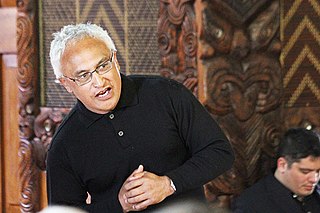
Tutekawa "Tu" Wyllie is a former New Zealand politician and rugby union player. A first five-eighth, Wyllie represented Wellington at a provincial level, and played one match for the New Zealand national side, the All Blacks, in 1980. He was the New Zealand First Member of Parliament for Te Tai Tonga from 1996 to 1999.

Māori politics is the politics of the Māori people, who were the original inhabitants of New Zealand and who are now the country's largest minority.
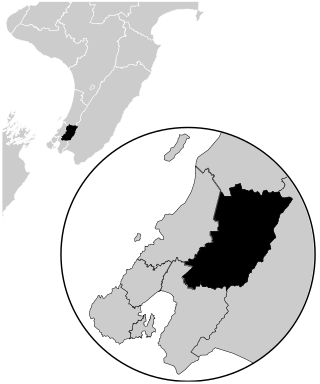
Remutaka is an electorate returning one member to the New Zealand House of Representatives. Since the 2008 general election, the seat has been represented by Chris Hipkins, who served as Prime Minister of New Zealand and is currently the Leader of the Opposition.

Te Tai Tokerau is a New Zealand parliamentary Māori electorate that was created out of the Northern Maori electorate ahead of the first Mixed Member Proportional (MMP) election in 1996. It was held first by Tau Henare representing New Zealand First for one term, and then Dover Samuels of the Labour Party for two terms. From 2005 to 2014, it was held by MP Hone Harawira. Initially a member of the Māori Party, Harawira resigned from both the party and then Parliament, causing the 2011 by-election. He was returned under the Mana Party banner in July 2011 and confirmed at the November 2011 general election. In the 2014 election, he was beaten by Labour's Kelvin Davis, ending the representation of the Mana Party in Parliament.

Waiariki is a New Zealand parliamentary Māori electorate that was established for the 1999 election, replacing the Te Tai Rawhiti electorate. It is currently held by Te Pāti Māori co-leader Rawiri Waititi, who won it in the 2020 and 2023 general elections.

Ōhāriu, previously spelled Ohariu and then Ōhariu, is a New Zealand parliamentary electorate returning one Member of Parliament to the House of Representatives. It first existed from 1978 to 1993, and was recreated for the 2008 election. In 2008, it was the successor to Ohariu-Belmont, first contested at the first mixed-member proportional (MMP) election in 1996. Through its existence Ohariu-Belmont was represented by Peter Dunne, leader of the United Future party. Dunne contested and won the recreated electorate in 2008. He announced on 21 August 2017 that he would not stand in the 2017 general election.
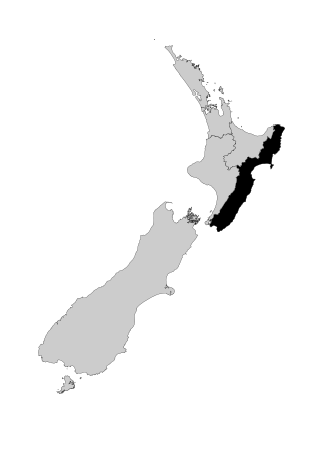
Ikaroa-Rāwhiti is a New Zealand parliamentary Māori electorate that was formed for the 1999 election. It covers the eastern North Island from East Cape south through Hawke's Bay and the Wairarapa to Wainuiomata and most of the Hutt Valley, but not southern Lower Hutt or Wellington City.
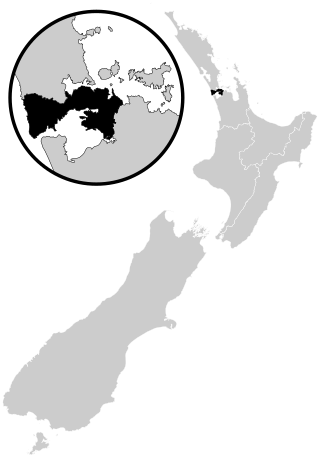
Tāmaki Makaurau is a New Zealand parliamentary Māori electorate returning one Member of Parliament to the New Zealand House of Representatives. It was first formed for the 2002 election. The electorate covers central and southern Auckland, and southern parts of western Auckland. It derives its name from the Māori-language name for Auckland; Makaurau is a descriptive epithet referring to the value and desirability of the land.

Te Tai Hauāuru is a New Zealand parliamentary Māori electorate, returning one Member of Parliament to the New Zealand House of Representatives, that was first formed for the 1996 election. The electorate was represented by Tariana Turia from 2002 to 2014, first for the Labour Party and then for the Māori Party. Turia retired and was succeeded in 2014 by Labour's Adrian Rurawhe who retained the seat in 2017 and again in 2020.

Hauraki-Waikato is a New Zealand parliamentary Māori electorate first established for the 2008 election. It largely replaced the Tainui electorate. Nanaia Mahuta of the Labour Party, formerly the MP for Tainui, became MP for Hauraki-Waikato in the 2008 general election and was re-elected in 2011, 2014, 2017 and 2020.
Southern Maori was one of New Zealand's four original parliamentary Māori electorates established in 1868, along with Eastern Maori, Western Maori and Eastern Maori. In 1996, with the introduction of MMP, the Maori electorates were updated, and Southern Maori was replaced with the Te Tai Tonga and Te Puku O Te Whenua electorates.
Te Tai Rawhiti was one of the five new New Zealand parliamentary Māori electorates created in 1996 for MMP. It largely replaced its English-named predecessor, Eastern Maori, though Te Tai Rawhiti's boundary was retracted significantly in the central North Island.
Rahui Reid Katene is a New Zealand politician. She was elected to the 49th New Zealand Parliament at the 2008 general election representing the Māori Party in the seat of Te Tai Tonga, but lost in the 2011 general election to Labour's Rino Tirikatene.

The 2014 New Zealand general election took place on Saturday 20 September 2014 to determine the membership of the 51st New Zealand Parliament.
The Mana Movement, originally known as the Mana Party, is a former political party in New Zealand. The party was led by Hone Harawira who formed it in April 2011 following his resignation from the Māori Party. Harawira won the by-election in Te Tai Tokerau of 25 June 2011 for the Mana Party and retained the seat during the 2011 general election in November.

Rino Tirikatene is a New Zealand Labour Party politician and a former member of the House of Representatives. He comes from a family with a strong political history.

Melissa Heni Mekameka Whaitiri is a New Zealand politician and former member of the New Zealand House of Representatives. She was first elected to Parliament in the 2013 Ikaroa-Rāwhiti by-election for the Labour Party.



















